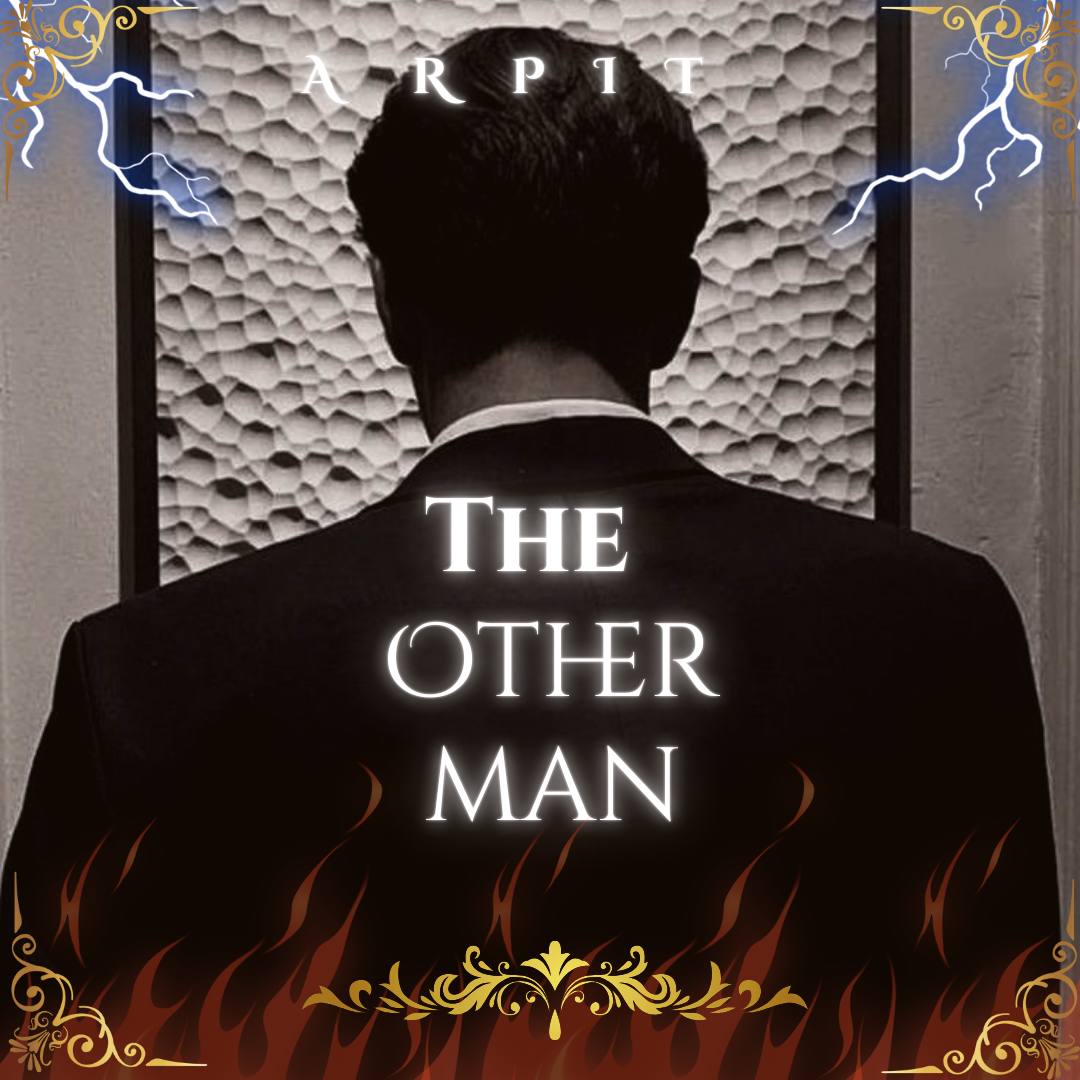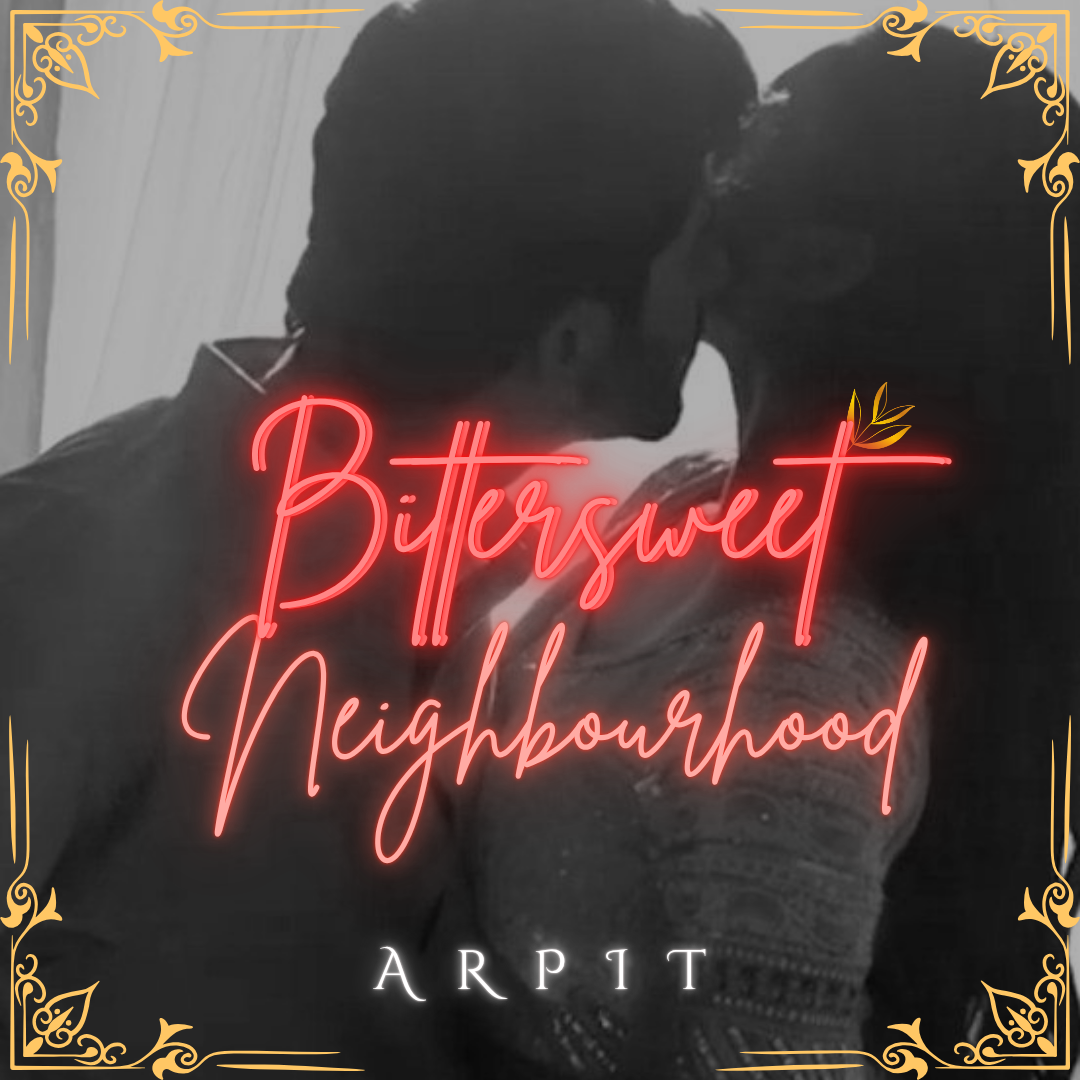
The marriage fire crackled in the center of the mandap, casting golden light across the courtyard. The night air was thick with jasmine, burning ghee, and the low hum of shenai music. Guests bustled around in festive colors, unaware of the quiet storm brewing inside the Bhatt household.
Inside his room, Viraj Bhatt lay on a thin cotton mattress, sweat lining his forehead. His breathing was shallow, and his eyes fluttered beneath his lids.
“He has fever,” whispered Meera, dabbing her father-in-law’s face with a cold cloth. “Maybe even a chill. This came on too fast.”
Rudraksh stood near the door, unmoving, his eyes locked on the bundle of puja items Viraj had prepared that morning — copper vessels, holy thread, the sacred ash in a silver tin. They waited on the floor like soldiers without their commander.
There was a knock at the door.
“Rudraksh beta,” came Ramlal’s voice from outside, soft and nervous. “Everyone’s ready. Baraat is here. We’re waiting for Panditji.”
Meera looked up sharply. “Don’t open the door!”
Rudraksh turned toward her. “Maa... Dadaji won’t be able to do it.”
“I know,” she said, her voice almost breaking. “But your Baba must not know you’re going in his place. He won’t allow it.”
“He doesn’t have to know,” Rudraksh said calmly. “I’ll leave now. From the back.”
Meera reached out and gripped his wrist tightly. “You were never meant to take this path, beta. Not yet. Not like this.”
“I know,” he said, softer now. “But they need someone. And it has to be one of us. I’ve watched Dadaji do this my whole life. I know the mantras.”
She looked at him for a long moment. In her eyes: fear, love, something close to reverence. Then, slowly, she let go of his wrist.
“Cover your head,” she said, her voice barely a whisper. “And take this — it’s your Dadaji’s stole. It still carries the scent of sandalwood.”
He nodded, wrapped the cloth around his shoulders, and slipped out the back gate, disappearing into the night like a shadow answering a quiet call.
Later That Night — At the Mandap
The fire blazed bright as Rudraksh Bhatt, face calm, voice steady, chanted the age-old mantras. He moved with the weight and grace of tradition, guiding the bride and groom through the rituals with hands that did not tremble.
Some guests noticed the difference — this was not Viraj Bhatt.
But no one questioned it.
In that moment, under the sacred flame, Rudraksh was his Dadaji’s reflection — not just in blood, but in spirit.
From afar, Meera watched quietly from behind a pillar, her eyes glassy. Her son was no longer a boy hiding from legacy.
He was walking straight into it.
The sun was already above the hills when Vedas returned home from the neighboring town, unaware of what had happened in his absence.
The courtyard was quiet, too quiet. The tulsi leaves glistened with dew, and birds chirped obliviously. Meera sat near the old peepal tree, her hands folded in her lap, her eyes cast down—not in guilt, but in preparation.
Vedas entered through the main door and stopped as soon as he saw Viraj sleeping inside, a damp cloth still on his forehead.
“He’s still not well?” Vedas asked, already concerned.
“He’s resting now,” Meera said quietly.
“Who did the marriage rites then?” he asked, frowning. “You must’ve called someone from Rishikesh?”
She didn’t answer immediately.
Vedas turned to her. “Meera?”
Before she could speak, Rudraksh stepped into the room, dressed in a fresh kurta, hair still damp from his morning bath.
“I did them,” he said simply.
The silence that followed was sharp as broken glass.
“You what?” Vedas’s voice was thunder, and even the birds outside fell quiet.
Rudraksh stood his ground. “Dadaji was too sick. Ramlal kaka begged us. Someone had to do it.”
“You had no right,” Vedas said, his face pale with fury. “You are not ready for that. You are not a pandit. That path wasn’t meant for you.”
“You mean it wasn’t meant for you,” Rudraksh said, eyes locking with his father’s.
Vedas stepped forward, his chest rising with rage. “You went behind my back. You are not mean for it, Rudraksh !”
“I didn’t do it for meaning,” Rudraksh said calmly. “I did it because someone needed us. And Dadaji couldn’t get out of bed.”
“You should have waited. You should have told me!”
“And let the whole village wait around an empty mandap?” Rudraksh’s voice rose now, just slightly. “Let the bride cry while we argue about names and roles?”
Vedas turned to Meera then, his face filled with disbelief.
“And you allowed this?” he said. “You let him go behind my back?”
Meera stood now. “I didn’t let him. I trusted him.”
Vedas stared at her, betrayed.
“You kept this from me, Meera.”
“And if I hadn’t?” she replied, voice still and steady. “Would you have stopped him? Because you were afraid—or because you never wanted him to be more than a shadow?”
That struck something in him. Deep.
Vedas looked at his son again—no longer the hesitant boy avoiding legacy, but a young man who had stared into the sacred fire and hadn’t flinched.
Without another word, Vedas turned and walked out of the room.
The house felt heavier after Vedas left the room, like the air itself was thick with smoke from a fire no one wanted to admit had burned too long.
Meera sat on the edge of the cot, rubbing her palms nervously. Rudraksh remained standing, eyes still fixed on the door his father had walked out of moments ago.
“You were brave,” she said softly.
“I didn’t feel brave,” Rudraksh replied. “I felt... responsible.”
She smiled faintly. “That’s exactly what makes you ready.”
He turned toward her, surprised by her quiet confidence.
“Do you think Dadaji will be angry?”
“No,” she said without hesitation. “He’s the one who taught you to light the fire. He’ll understand.”
A faint groan came from inside the room. Viraj Bhatt stirred beneath the white sheet. His eyes fluttered open, and he looked around slowly until they met Meera’s face.
“Where... is Vedas ?” he asked, voice raspy.
“He’s gone out for a while,” Meera said,. “Baba Rest. You have fever.”
Viraj’s eyes moved next to Rudraksh. “The wedding?”
Rudraksh stepped closer. “It’s done. I performed the rituals.”
There was a beat of silence. Then, slowly, Viraj’s lips curved into a tired, proud smile.
“You remembered the mantras?”
“I did.”
“Did your hands shake?”
“No.”
“Then you did it well,” Viraj whispered, eyes closing again. “The dharma chose you... not the other way around.”
Vedas hadn’t returned.
Dinner remained untouched, and the oil lamp burned low in the hall.
Rudraksh sat on the steps of the courtyard, looking up at the stars. He could hear the insects chirping and the distant bark of a stray dog. Meera came and sat beside him, her shawl wrapped tightly around her shoulders.
“He’s not angry at you,” she said. “Not truly. He’s angry at himself.”
“For what?”
“For leaving the fire behind,” she said. “For letting it pass to his father, and now to you.”
Rudraksh looked at her, surprised.
“He always wanted to live differently. He thought stepping away from the traditions would make him free. But when he sees you step toward them, he feels the ache of everything he couldn’t be.”
Rudraksh was quiet for a moment. “I don’t know if I want this path either.”
“You don’t have to decide tonight,” she said, placing a hand on his. “But you walked into that mandap, and you didn’t run. That’s something even your father couldn’t do.”
The wind rustled the peepal leaves above them like an old lullaby. The night was deep and quiet, but the Bhatt household was far from asleep.
Somewhere in the silence, a father wrestled with pride and pain.
And somewhere in the courtyard, a son waited for the dawn — and whatever it might bring.
Devanshi was seated at the writing desk in her suite, a soft glow from the antique lamp illuminating the stack of documents spread before her. The papers were neatly arranged, annotated with coloured tabs and scribbled notes in her precise handwriting. She wore a simple yet elegant kurta, her hair pulled back into a low bun as she reviewed the new sustainability reports tied to the Rishikesh project.
A gentle knock interrupted her concentration.
She rose, smoothing her sleeves, and opened the door to find her father, Devraj Rathore, standing outside. His face—usually calm and composed—was marked by concern. His phone was in one hand, still lit with an urgent message, and his brow furrowed as he met her eyes.
"What happened, Papa?" Devanshi asked, instantly alert.
Devraj stepped inside, glancing down the hallway as if still mentally sorting through the crisis at hand.
"Beta, there’s been an issue at the office. I need to leave immediately—there’s a situation that can’t wait," he said, his voice low and strained.
Devanshi nodded without hesitation, her expression steady.
"Yes, Papa. Go. If it’s urgent, you shouldn’t delay."
But he lingered, shifting uneasily.
"But Princess... will you be able to manage things here on your own?" he asked, his tone touched with reluctance.
She gave him a small, reassuring smile, placing a gentle hand on his arm.
"I’ll be fine. Niharika is arriving tomorrow morning. Once she’s here, everything will settle into place. You’re needed in the city more than I need you here right now," she said, her voice calm, firm—almost reflective of his own leadership once upon a time.
Devraj looked at her, a flicker of doubt crossing his features—not in her capability, but in the parental instinct that made it hard to walk away.
"It’s just... I don’t like the idea of leaving you alone in the middle of all this," he admitted.
She laughed softly, a warm sound that momentarily eased the tension.
"Papa, you won’t be gone forever. And besides, remember the Bangalore deal? You need to visit the site this weekend—you can’t back out now. Everything here is under control. Trust me."
Devraj paused. Then slowly, he gave a quiet nod.
He studied her for a moment—the way she stood there, poised, grounded, the same determination in her eyes that had once built his empire from the ground up. She wasn’t just his daughter anymore; she was his equal.
"You’re right," he said finally. "You’ve grown into this far better than I ever imagined."
"Only because I learned from the best," Devanshi replied softly.
Devraj exhaled, the last bit of hesitation melting from his shoulders. He stepped forward and gently pressed a kiss to her forehead.
"Take care, Princess. Call me if anything—anything at all—comes up."
"I will. Safe travels, Papa."
As he walked away, suitcase in hand, Devanshi returned to her desk. The door clicked shut behind her, and silence settled once again in the room. She glanced out of the window at the distant hills now shrouded in twilight.
"I can handle this," she whispered to herself.
And she would.
The late morning sun hung low and hot over the construction site, casting a pale haze across the unfinished pillars and scaffolding of what would soon become one of the most luxurious resorts in the northern hills. Dust clung to the air like fog, coating every surface in a muted grey.
Devanshi stepped out of the SUV, flanked by her assistant Niharika, who carried a folder and a digital tablet. Dressed in a crisp beige linen kurta, Devanshi scanned the site with a practiced eye. Workers moved about busily—some laying tiles, others welding near the main structure. Despite the progress, her attention remained fixed on the people, not the buildings.
As they moved past a stack of cement sacks, a loud thud split the air. A small group of workers rushed toward the back of the site where the commotion had erupted.
Devanshi and Niharika followed quickly. As they rounded the corner, they saw a woman sprawled on the dusty ground beside a collapsed metal cart. Blood trickled from a wound on her forehead, and her eyes were only half-open, dazed. Her saree was torn, and her breathing shallow.
Without hesitation, Devanshi knelt beside her.
"She’s hurt badly. We need to get her to a hospital—now," she said, her voice sharp and unwavering.
Niharika, already dialing emergency contacts, nodded.
"There’s a government clinic about fifteen minutes away, I’ll let them know we’re coming."
Just as they began lifting the woman into the back of the car, Mr. Kakkar appeared, his expression tight with irritation.
"Ms.Rathore, what are you doing?" he asked, stepping closer. "You don’t need to get involved in all this. These laborers—this kind of thing happens all the time."
Devanshi turned to face him, her eyes cold and focused.
"She fell on our site, Mr. Kakkar. She’s our responsibility now."
He raised a hand dismissively. "Madam, these poor people—look, they’re always getting scrapes, falling here and there. She’ll be fine with some water and rest. You don’t need to take her to a hospital for this."
Devanshi’s jaw tightened, but she remained composed.
"You think this is a scrape?" she said, pointing to the blood running down the woman’s temple. "She could have a concussion, internal bleeding—we don’t know. And I’m not going to gamble with someone’s life just because it’s inconvenient for you."
Kakkar hesitated, caught off-guard by the steel in her voice.
"We’re not running a sweatshop. We're building something that’s meant to reflect values. If you can’t understand that, Mr. Kakkar, perhaps you’re not the right partner for this project," she added, her tone cool but resolute.
Without waiting for his reply, Devanshi nodded to Niharika, and the two women helped the injured worker into the car. As they pulled away, Devanshi glanced once more through the rearview mirror—seeing Kakkar standing at the edge of the site, arms crossed, his ego bruised.
Inside the vehicle, the woman stirred slightly, murmuring something in pain.
Devanshi reached forward and gently held her hand.
"You’re going to be alright. We’re taking you to the doctor now," she said quietly.
For Devanshi, this wasn’t just about one injured worker—it was a line in the sand. A declaration.
"Human dignity doesn’t get negotiated—no matter the project, no matter the cost."
Sneak peek- Chapter 6
"Maybe that’s the problem with most people in my position," she replied. "If I’m building something with my name on it, I can’t let it stand on someone else’s broken back. It’s not just about profit. It’s about what kind of world we leave behind."
Vedas stared at her for a long, silent second.
There it was—in her voice, her conviction—a kind of compassion he hadn’t seen in years. And suddenly, like a gust of memory, his thoughts drifted to someone else. Someone who had once spoken with that same gentleness, that same fire masked in grace.










Write a comment ...